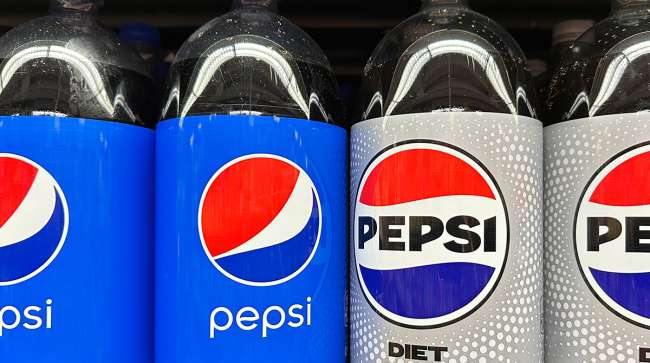Sales Performance Overview
In the second quarter, PepsiCo demonstrated remarkable resilience despite facing sluggish sales in the North American market. The report indicated that while the company’s sales struggled in the US, regions like Latin America and Asia showed positive growth, providing a silver lining amidst the challenges.
Challenges in the North American Market
During the April to June period, PepsiCo’s North American sales witnessed a slight dip, with snack sales declining by 1% and beverage sales dropping by 2%. According to PepsiCo’s management, the impact of consistent price hikes over the years has shifted consumer preferences. Many consumers perceive the products as being on the pricier side, which has led the company to explore strategies to tackle this perception. To counteract this trend, PepsiCo is expanding its distribution channels for value brands such as Chester’s 和 Santitas, aiming to capture a broader market segment.
Revenue Insights
Despite the challenges faced within the North American market, PepsiCo’s overall revenue rose to $22.7 billion, just shy of 1% growth. This exceeded analysts’ expectations of $22.3 billion, showcasing the company’s capability to rebound in certain regions. The growth is driven primarily by strong sales of low- or no-sugar variations of the company’s core products, indicating a growing consumer preference towards healthier options.
Regional Growth Reports
In stark contrast to the North American market, PepsiCo saw robust sales increases in Latin America and Asia. These regions have shown a promising appetite for the company’s products, indicating potential for future growth opportunities. The success of low-calorie beverage options globally further highlights the versatility of PepsiCo’s product offerings in catering to changing consumer demands.
Pre-market Reactions
On July 17, the company’s shares jumped nearly 2% during premarket trading, reflecting optimism from investors following the earnings report. However, it’s important to note that there’s an undercurrent of caution as PepsiCo recently lowered its full-year earnings expectations, primarily due to escalating costs from tariffs and a hesitance in consumer spending. The inflationary pressures and increased operational costs speak volumes about the current economic landscape in which the company operates.
Impact of Tariff Increases
Tariff challenges are becoming a significant hurdle for companies like PepsiCo. With tariffs on imported aluminum hiking from 25% to 50%, operational costs have increased, prompting the company to adjust its financial outlook. These growing costs may not only affect profits but also influence pricing strategies and distribution logistics moving forward.
对物流的影响
As logistics play a fundamental role in ensuring seamless distributions, the tariffs and pricing revisions expected in the beverage and snack sectors could lead to strategic shifts within supplier and distributor networks. Ultimately, the company’s adjustments in procurement strategies to manage these costs could create ripple effects in logistics, highlighting the importance of responsive systems.
PepsiCo’s Rankings in the Transport Sector
In the realm of logistics, PepsiCo holds a commendable position, ranking as the second largest private carrier in North America according to the Transport Topics Top 100 list. Within this sector, PepsiCo Foods North America ranks fourth among food service carriers, while PepsiCo Beverages North America proudly stands as the top beverage carrier. These rankings underscore the company’s substantial logistic capabilities and distribution networks that keep its products flowing to market efficiently.
Distribution Strategy and Future Possibilities
The adaptability shown by PepsiCo reinforces the notion that companies must remain vigilant and responsive to consumer preferences and economic fluctuations. As they navigate these waters, the logistics segment must remain flexible to accommodate changes in distribution strategies, especially as consumer demand shifts towards healthier alternatives. Companies like GetTransport.com offer innovative solutions ensuring efficient, affordable cargo transport that could be invaluable as businesses adapt to such changing landscapes.
结论
The insights gleaned from PepsiCo’s quarterly report provide valuable lessons in resilience and adaptability amidst a challenging market. While North American sales faced headwinds, the company’s ability to diversify and find growth in other regions is encouraging. Additionally, the logistics implications of increasing tariffs emphasize the interconnection between economic factors and transportation strategies. Services like those provided by GetTransport.com can significantly enhance logistical efficiency, making it easier for companies to navigate complex shipping and cargo challenges. With a versatile approach to logistics, GetTransport.com ensures that businesses meet their unique transport needs effectively and affordably, fostering growth in an ever-evolving landscape. For your next cargo transportation, consider the convenience and reliability of GetTransport.com.

 百事公司第二季度在美销售低迷但仍大幅增长">
百事公司第二季度在美销售低迷但仍大幅增长">